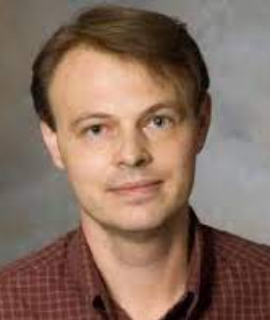Title : Radiofrequency EMF irradiation effects on pre-B lymphocytes undergoing somatic recombination
Abstract:
DNA double stranded breaks (DSBs) occur in lymphocytes exposed to intense electromagnetic fields (EMFs). We study developing pre-B lymphocytes following V(D)J recombination at their Immunoglobulin light chain loci (IgL). Recombination physiologically induces DNA DSBs, and we tested if low doses of EMF irradiation affect this developmental stage. Recombining pre-B cells, were exposed for 48 hours to low intensity EMFs (maximal radiative power density flux S of 9.5 mW/cm2 and electric field intensity 3 V/m) from waves of frequencies ranging from 720 to 1224 MHz. Irradiated pre-B cells show decreased levels of recombination, reduction which is dependent upon the power dose and most remarkably upon the frequency of the applied EMF. Although 50% recombination reduction cannot be obtained even for an S of 9.5 mW/cm2 in cells irradiated at 720 MHz, such an effect is reached in cells exposed to only 0.45 mW/cm2 power with 950 and 1000 MHz waves. A maximal four-fold recombination reduction was measured in cells exposed to1 GHz waves with S from 0.2 to 4.5 mW/cm2 displaying normal levels of gH2AX phosphorylated histone. Our findings show that developing B cells exposure to low intensity EMFs can affect the levels of production and diversity of their antibodies repertoire.
Audience take away:
- Our data address for the first time how the wireless communication EMF fields impact the repertoires of differentiating B lymphocytes.
- We will address in our presentation whether irradiated B cells can elicit an unaltered antibody response in response to antigen challenge, or novel infections.
- The methodology used in our study could be extended to investigate the effect on humoral immunity of other exogenous agents(chemicals or biological agents thought to be innocuous), hence it can be of immense benefit for clinicians.


